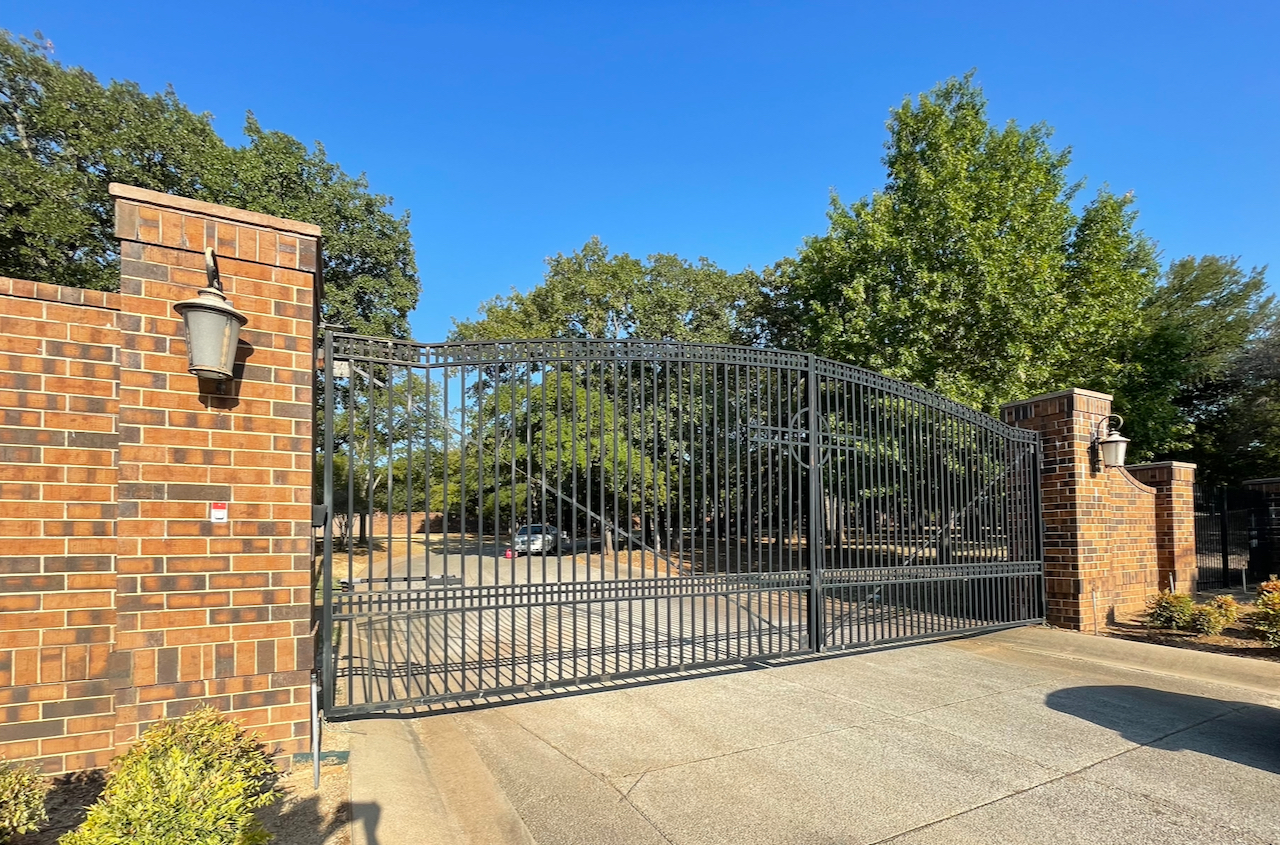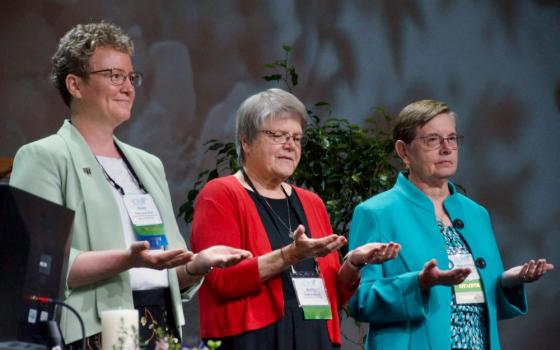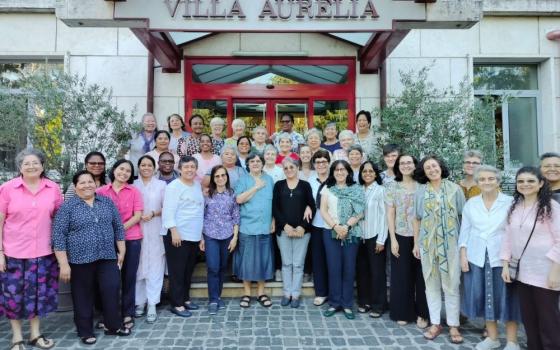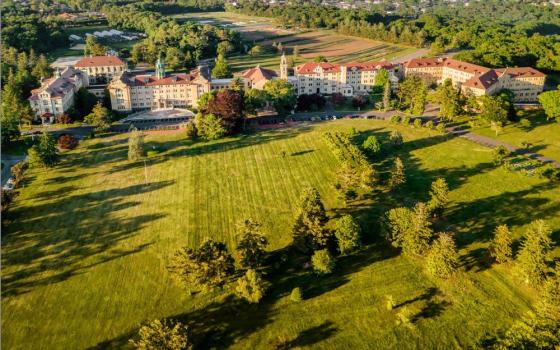
The gates of the Monastery of the Most Holy Trinity in Arlington, Texas, home of the Discalced Carmelite nuns, are seen Aug. 10, 2023. The nuns have been in a dispute with the bishop of Fort Worth for more than a year. (GSR photo/Dan Stockman)
Following the sudden cancellation of an April 30 court hearing between the Arlington Carmelite nuns and Fort Worth Catholic Bishop Michael Olson, lawyers representing the diocese told the Fort Worth Report that the nuns withdrew their request for a temporary restraining order without explanation.
Michael Anderson, an attorney representing Olson and the diocese in civil matters, said the opposing side withdrew its claims before the hearing, which was scheduled for 4 p.m. April 30. Matthew Bobo, an attorney representing the nuns on civil matters, declined to comment.
A group of sisters from the Monastery of the Most Holy Trinity in south Arlington filed for a temporary restraining order on April 22 against Bishop Michael Olson and the Association of Christ the King.
The Rev. Mother Teresa Agnes Gerlach, Sr. Francis Therese and Sr. Joseph Marie are seeking the order to prevent Olson and the association from entering the monastery or having any authority over its operation.
The move came days after the Vatican issued a decree placing the governance of the nuns under the authority of the Association of Christ the King, and making its president the monastery's superior. The nuns issued a statement opposing the new leadership, equating the change of leadership to a "hostile takeover."
Anderson responded to the restraining order April 29, denying all allegations that Olson "attempted to take over 'full governing powers'" from the nuns or "take over management and assets" of their monastery. He asked Tarrant County District Judge Don Cosby to throw out the suit, arguing that the court does not have jurisdiction over the matter.
As of 6 p.m. April 30, paperwork reflecting the nuns' request to withdraw was not accessible on a database maintained by the Tarrant County District Clerk's office.
Advertisement
A yearlong battle resurfacing
The temporary restraining order request follows a yearlong legal and ecclesiastical battle between the nuns and the bishop. In April 2023, Olson opened an investigation over allegations of Gerlach violating her chastity vow with a priest. In response, Gerlach filed a lawsuit against Olson and the diocese, alleging Olson invaded the nuns' privacy.
A Tarrant County judge dismissed the nuns' lawsuit last June, siding with the bishop in determining that the issue is a church matter and cannot be decided by the court. The nuns attempted to appeal the judge's decision in July, but later decided against doing so after the Vatican told the monastery that they would not act on the canonical investigation until civil litigation was concluded.
By August, the monastery released a statement saying the sisters no longer recognize Olson's authority as bishop and forbid him from entering the property. Olson said the decision could cause Gerlach to face excommunication from the church.
Earlier this month, the Vatican named Mother Marie of the Incarnation, president of the Association of Christ the King, as the "lawful superior," who would "exercise full governance" over the monastery and nuns, according to the decree. An election of new internal leadership for the monastery would be overseen by Olson, Olson said in an April 18 statement.
Legal, religious complexities
Matthew Wilson is a professor at Southern Methodist University who specializes in politics and religion. He said civil courts have been reluctant to weigh in on the dispute because of previous rulings over the conflict being an ecclesiastical matter rather than a legal one.
Questions over who has ownership of access to the physical facilities could be disputed in civil court, Wilson said. However, the more difficult issue at hand, Wilson said, is how the dispute will impact the nuns' relationship with the diocese and the Vatican.
Wilson said the nuns' response to the decree places the sisters "in a much more different situation" both ecclesiastically and within the court of public opinion.
"In civil court, they can theoretically win the right to be a group of women who own a piece of property," Wilson said. "What they cannot win in civil court is the right to continue to be Catholic, and that is where I think the real rub is in this situation."
The Arlington nuns wrote in an April 20 statement that they are waiting on a response from the Vatican regarding their concerns over Olson's actions.
Whether the disputes continue in the court of civil law, the canonical saga will continue, Wilson said.
"No matter what the civil court rules, it doesn't help them ecclesiastically," he said. "And I think that's their biggest problem."
Editor's note: This article first appeared on Arlington Report and is republished here under a Creative Commons license.



